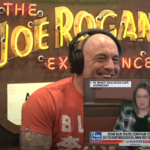A letter from Dr. Paula Riggs, Professor, Psychiatry.
You’ve probably heard a lot about the youth mental health crisis and the opioid epidemic. But what’s often missing from the conversation is the link between these two issues.
When I first started working with teens in the early ‘90s, I noticed a troubling pattern: Many young people in substance use treatment were also struggling with depression, anxiety, or other mental health challenges. Some had experienced these issues before they started using drugs or alcohol, while for others, substance use worsened mental health struggles.
Back then, we didn’t have clear treatment guidelines for young people facing both substance use and mental health disorders — I wanted to try to change that. Over the past 30 years, my research has helped develop new approaches, including a therapy called Encompass, which treats mental health and substance use together, instead of separately. Many others have also contributed to research advances that have led to a new understanding of these issues.
Science has come a long way, and here’s what we now understand:
- Substance use disorders are medical conditions, just like depression or anxiety.
- It’s very common for people with substance use issues to also have mental health challenges.
- Effective treatments exist and work as well as treatments for other kinds of medical conditions.
- The best approach is integrated care, meaning mental health and substance use should be treated together, ideally by the same provider or in the same program.
The healthcare system still makes it hard for individuals and families to get the right care. Mental health and substance use treatment are often separate, so people are left to figure out two systems instead of one. Also, insurance coverage doesn’t always match the level of care needed. Too often, families are left without clear guidance on what treatment is needed and where to find it. Individuals and their loved ones need real answers based on research. Many still believe that substance use is just a “phase” or that mental health struggles will pass on their own. Others get the wrong advice — like focusing only on stopping substance use without addressing other mental health challenges.
Drew Carey Reflects on His Battle With Depression and 2 Suicide Attempts
To more effectively tackle the youth mental health crisis and the opioid epidemic, we must raise awareness about the connection between substance use and mental health issues. Additionally, we need to advocate for our leaders and policymakers to address systemic barriers, ensuring that young people and their families can access effective, integrated treatment.
To purchase The Missing Issue for $8.99 go to https://magazineshop.us/harrisproject.
If you or someone you know is struggling with mental health and/or substance use, you are not alone. Seek immediate intervention — call 911 for medical attention; 988 for the Suicide and Crisis Lifeline; or 1-800-662-HELP for the SAMHSA (Substance Abuse and Mental Health Services Administration) National Helpline. Carrying naloxone (Narcan) can help reverse an opioid overdose.








